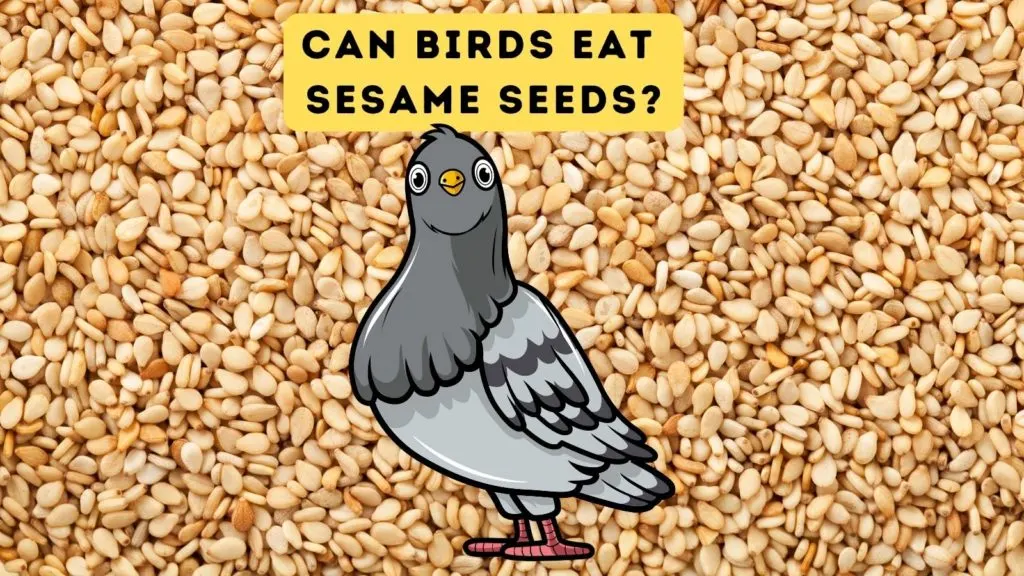We all know that most birds love seeds — but what about sesame seeds? These small, nutrient-packed seeds are commonly used in human cuisine, but are they good for wild birds? The answer is yes! Sesame seeds can be a healthy and beneficial addition to a bird’s diet. Let’s delve into which wild birds might eat sesame seeds, their benefits, and the best ways to serve them.

Nutritional Benefits of Sesame Seeds for Birds
Sesame seeds are rich in oils and fats, making them an excellent energy source for birds. They also contain essential nutrients like calcium, magnesium, copper, and iron, as well as vitamins, particularly B vitamins. These nutrients are vital for maintaining healthy feathers and bones and supporting overall bird health.
Wild Birds That Eat Sesame Seeds
Several wild bird species are likely to enjoy sesame seeds, including:
- Finches: These small birds are known to enjoy a variety of seeds and might readily accept sesame seeds.
- Sparrows: Common visitors to backyard feeders, sparrows will often eat small seeds like sesame.
- Titmice: These curious and agile birds enjoy a variety of seeds and nuts.
- Chickadees: Known for their acrobatic feeding habits, chickadees can be attracted with sesame seeds.
- Cardinals: While they typically prefer larger seeds, cardinals might also sample sesame seeds.
- Nuthatches: They often visit feeders and are likely to try different types of seeds.
Precautions When Feeding Sesame Seeds to Birds
- Unsalted and Unroasted: Offer only natural, raw sesame seeds without added salt or flavors.
- Freshness: Ensure the sesame seeds are fresh and free from mold or spoilage, which can be harmful to birds.
- Avoid Waste: Monitor the amount of sesame seeds consumed and adjust the quantity accordingly to minimize waste and spoilage.
Best Ways to Serve
- Mix with Other Seeds: Blend sesame seeds with other bird seeds to provide a varied diet. This can also prevent smaller seeds like sesame from falling through larger holes in bird feeders.
- Use Suitable Feeders: Offer sesame seeds in tube feeders, platform feeders, or tray feeders where birds can easily access them.
- Provide in Moderation: Due to their high-fat content, sesame seeds should be offered as a part of a balanced diet, not as the sole food source.
Sesame seeds can be a nutritious and enjoyable treat for some of the wild birds visiting your backyard. Their high nutrient content makes them a great supplemental food, especially during colder months when birds require more energy.
More Posts You Might Like
- 8 Letter Bird Names - August 14, 2024
- 7 Letter Bird Names - August 14, 2024
- 7 Birds Named After Famous People - July 23, 2024
